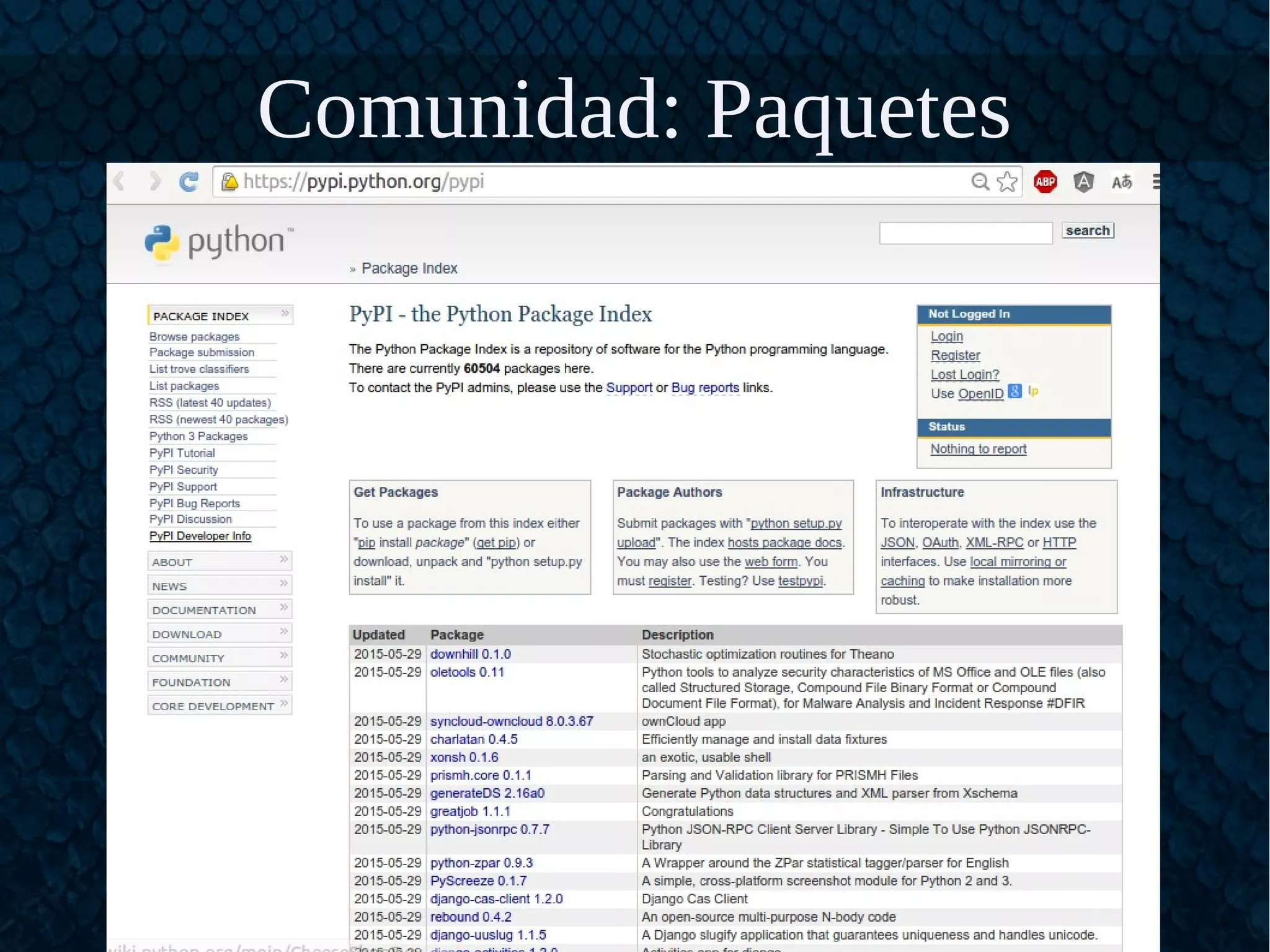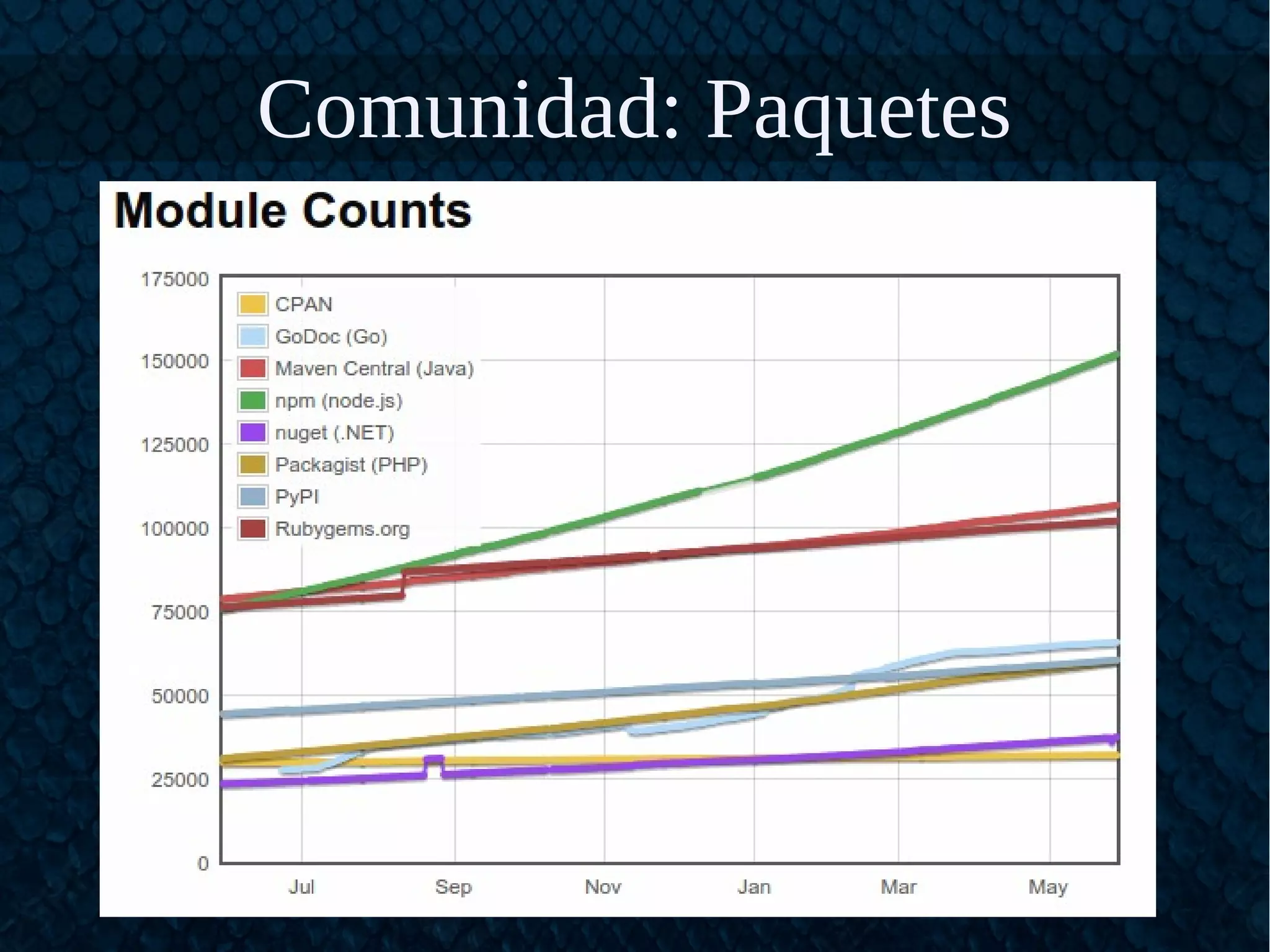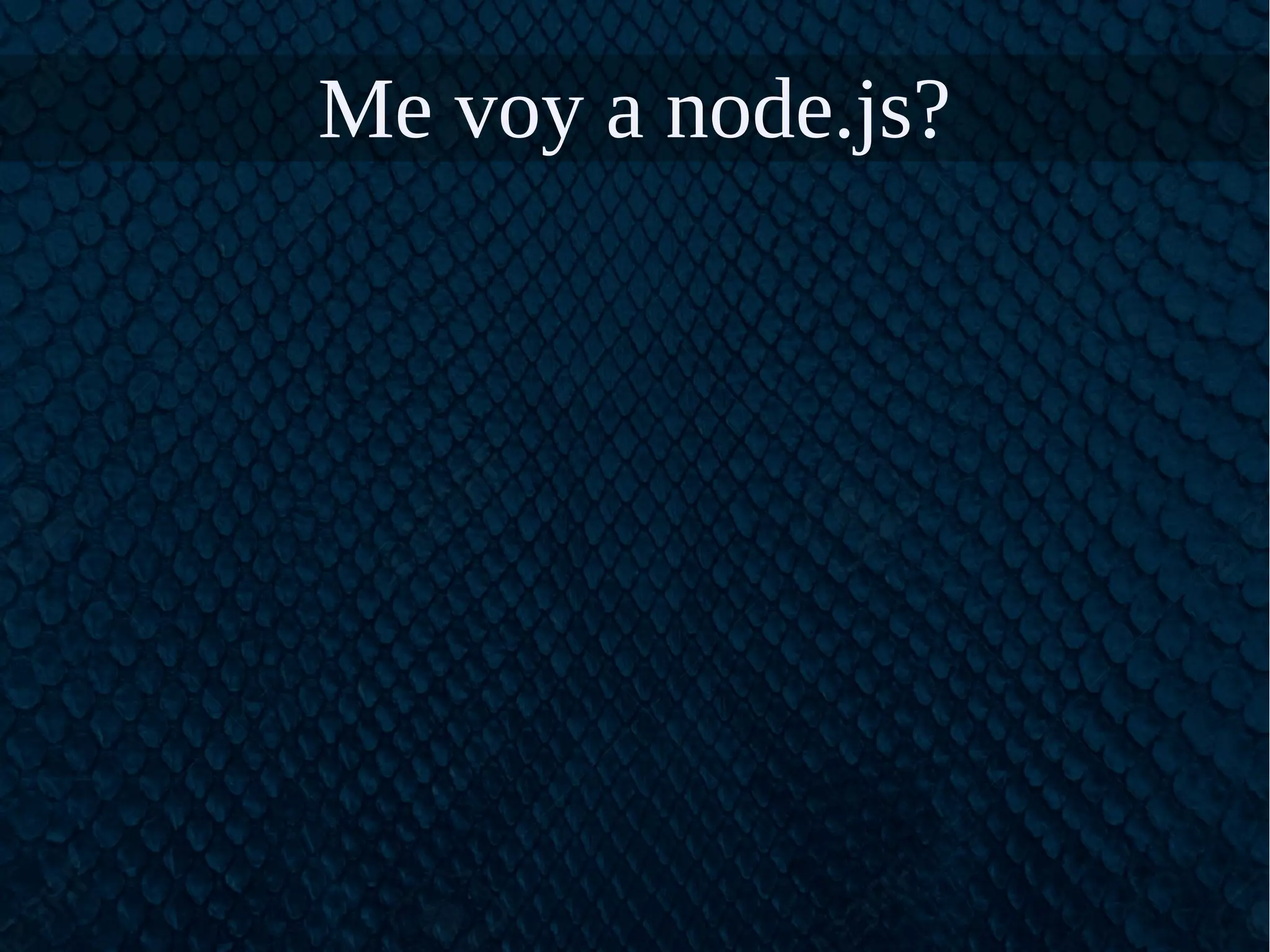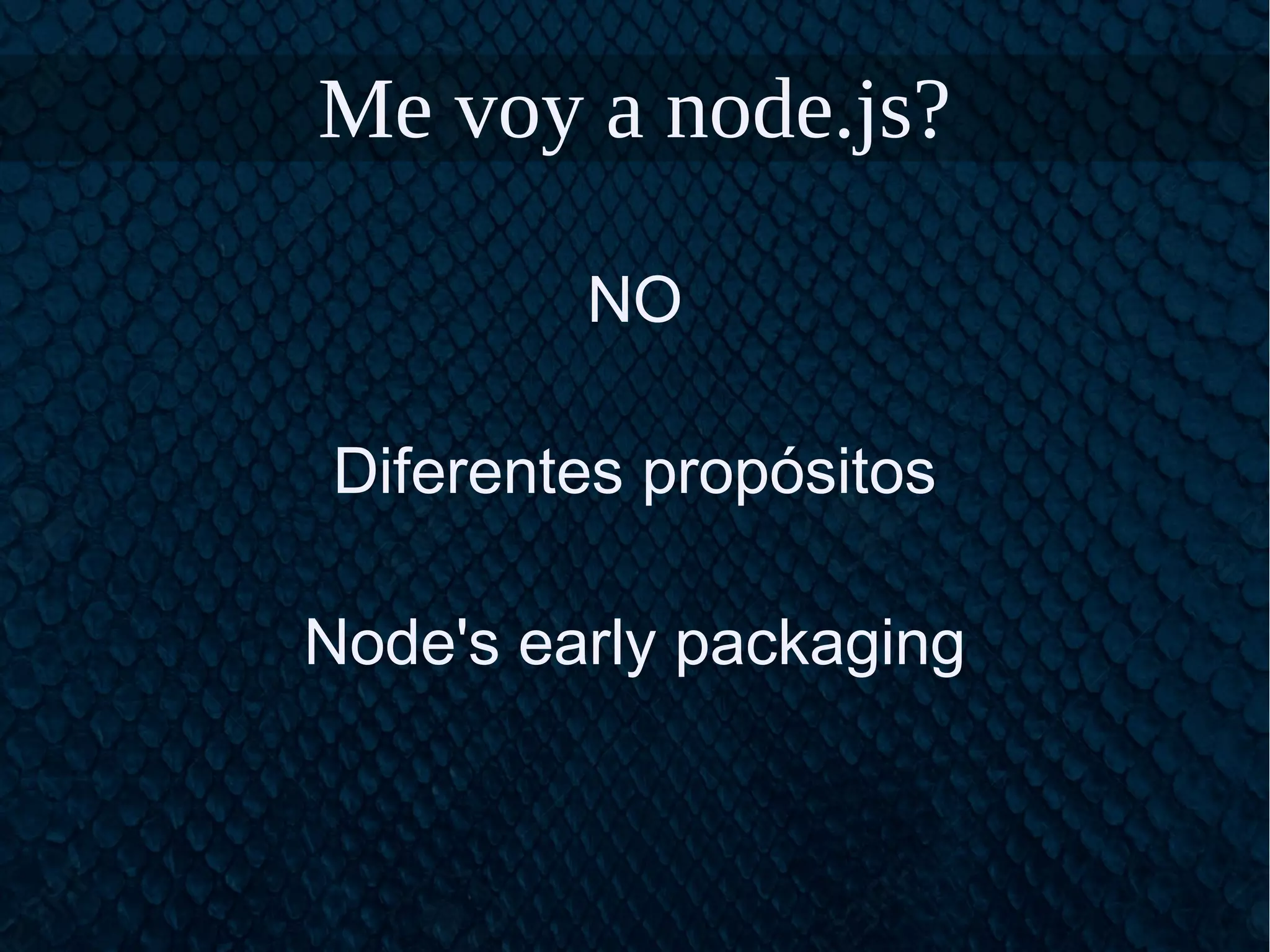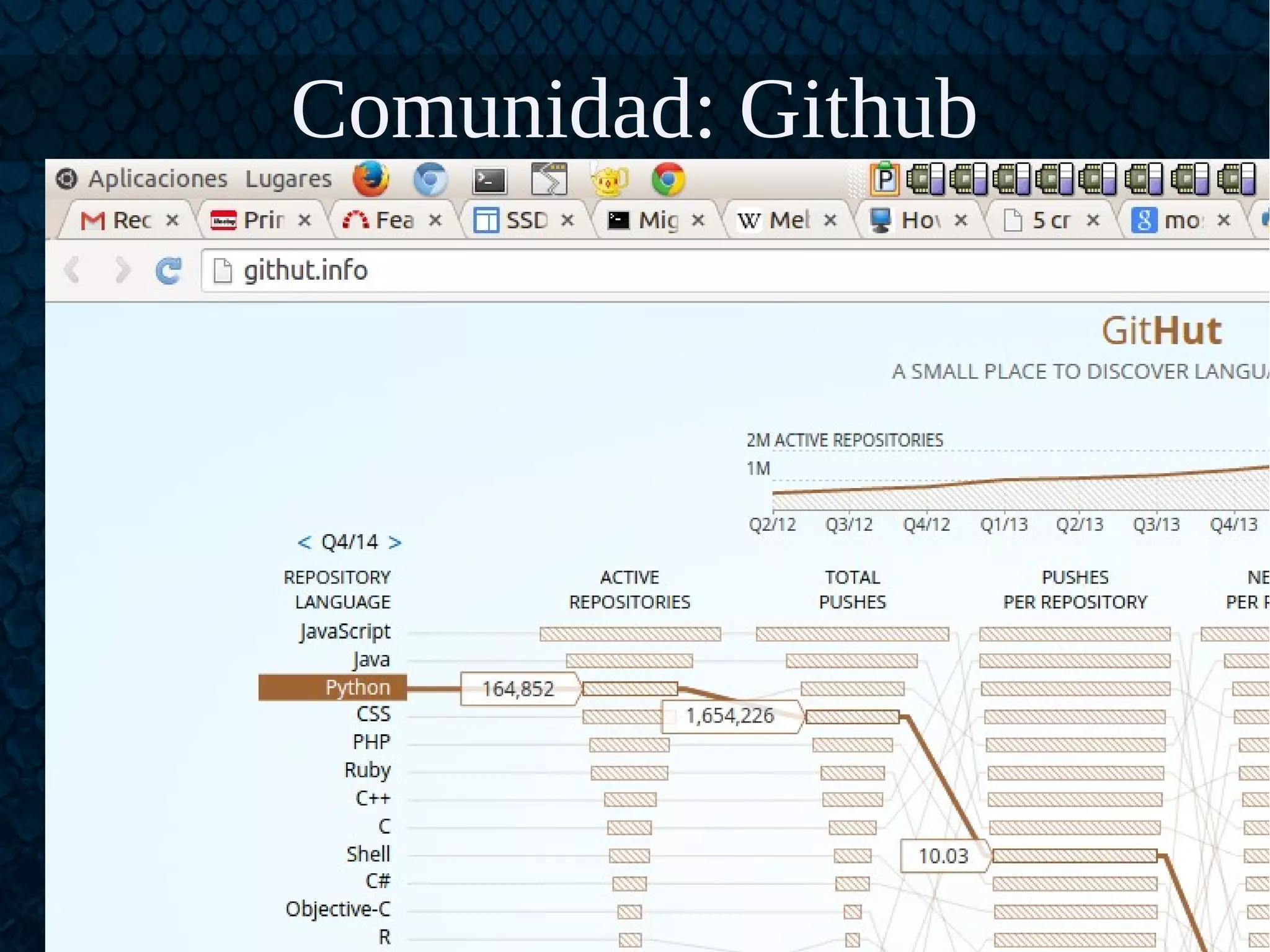This document provides an overview of the Python programming language. It discusses Python's creator Guido van Rossum and the language's origins. Key aspects of Python covered include its multi-paradigm design, dynamic typing, syntax, conventions, control structures, and large community of users and packages. The "zen of Python" philosophy emphasizes readability and simplicity.



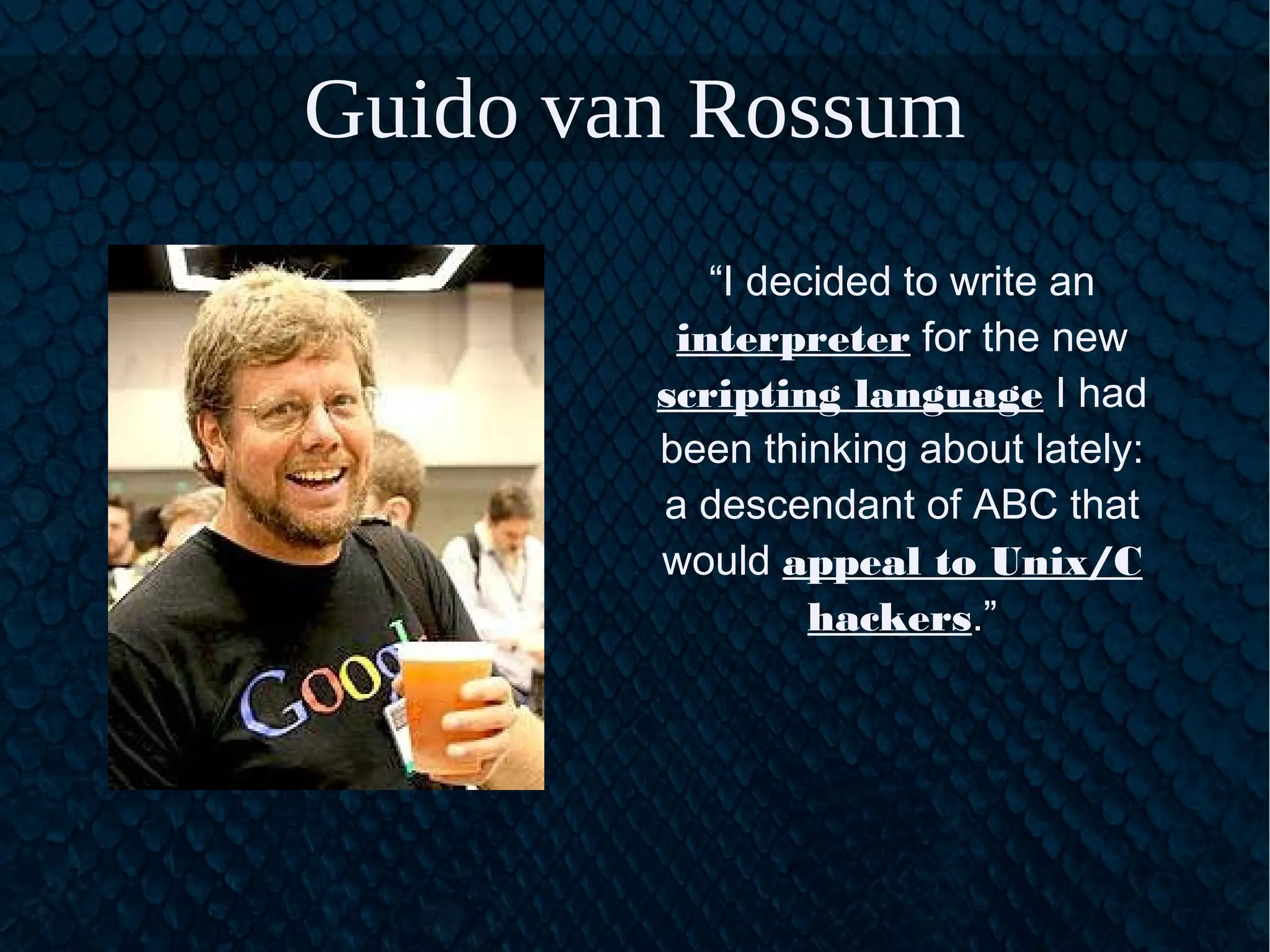



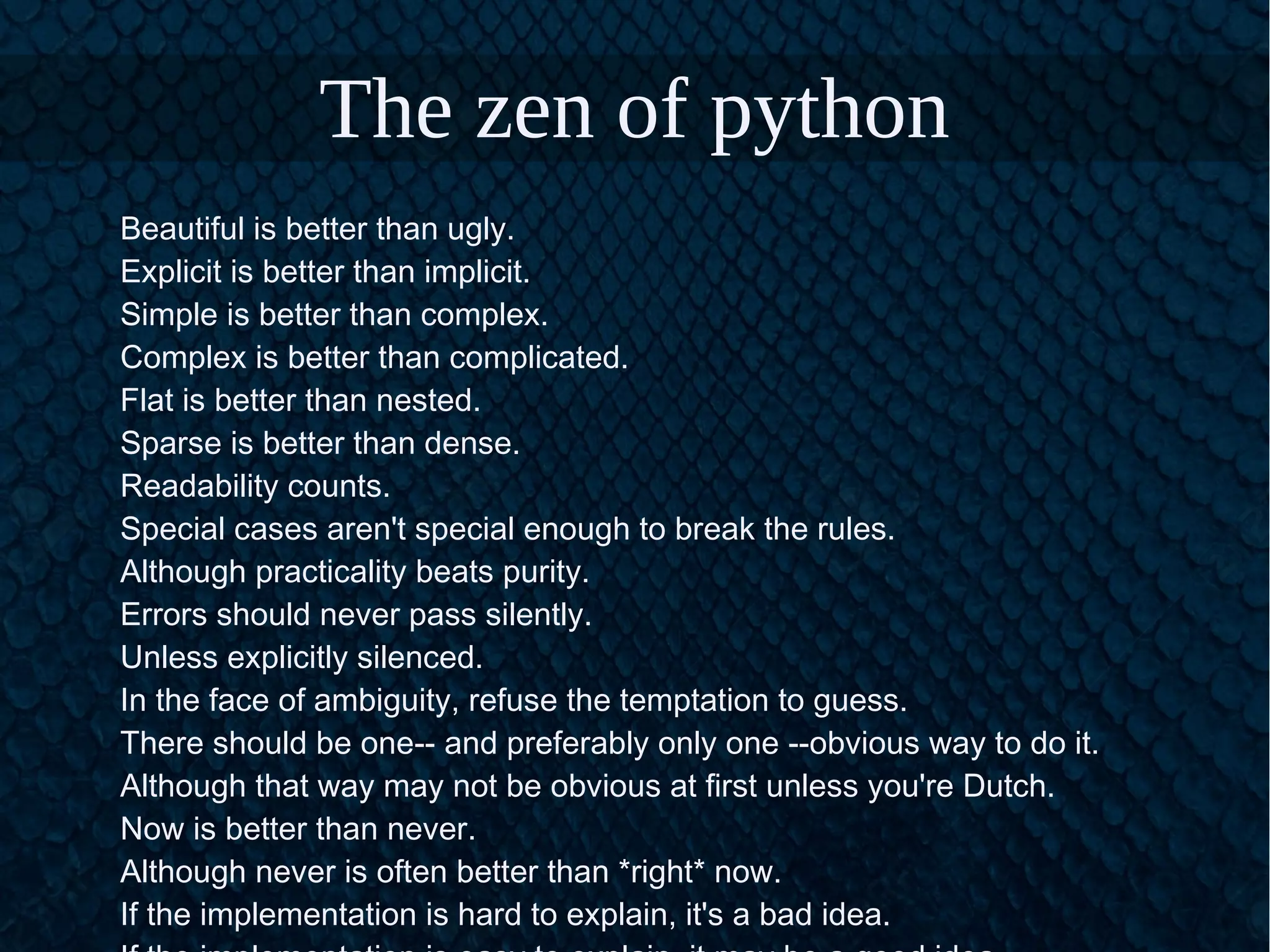
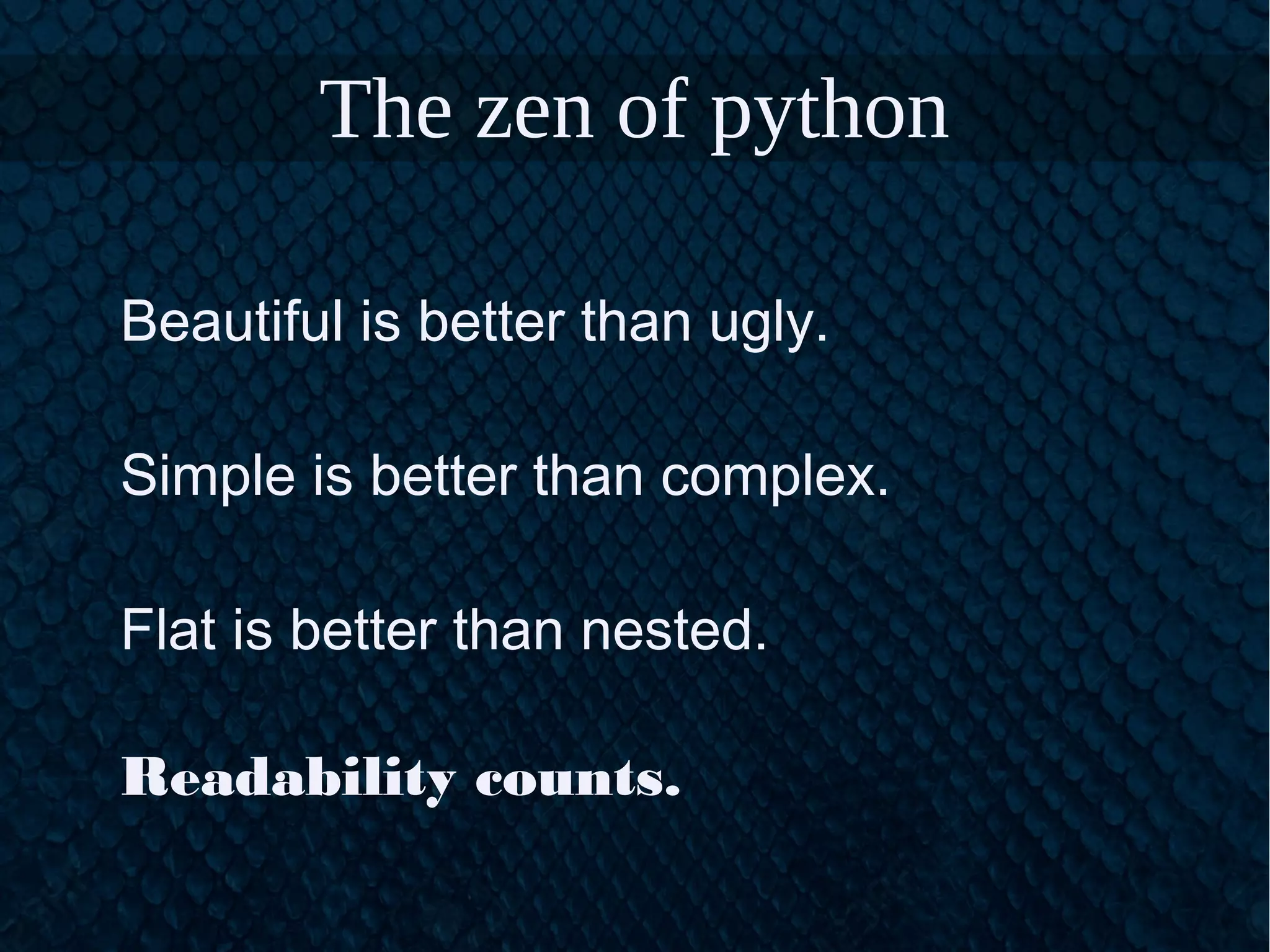
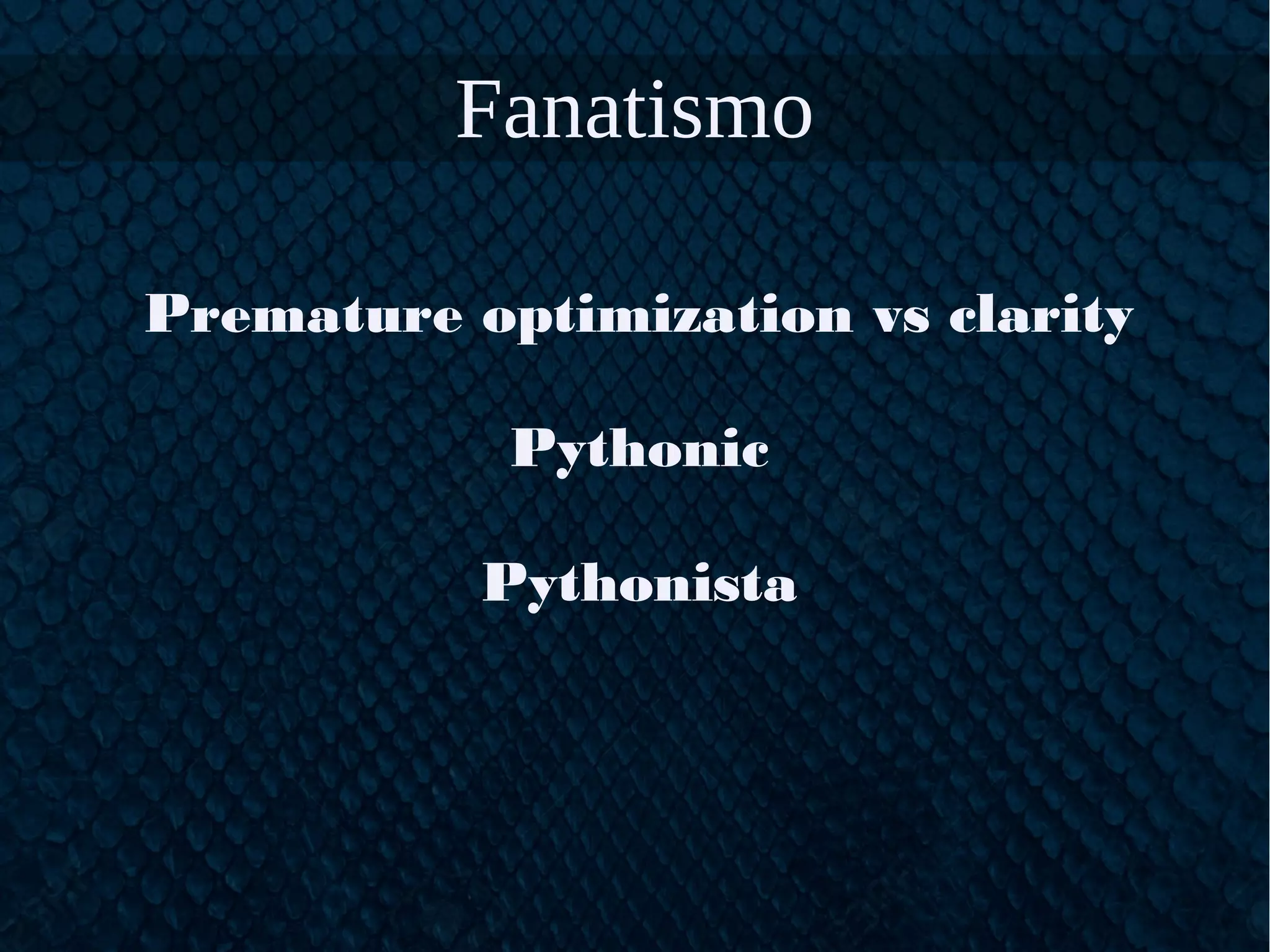

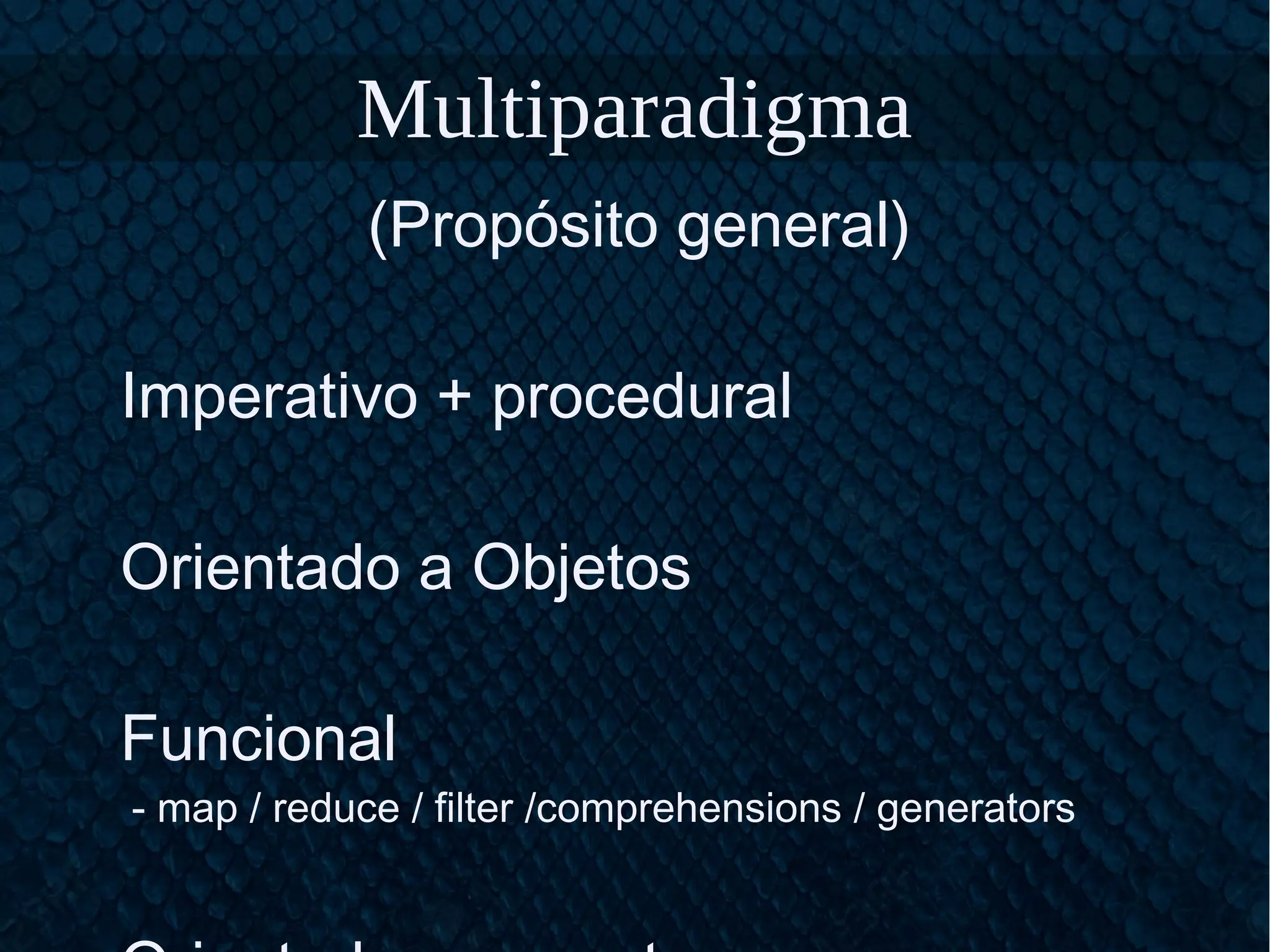
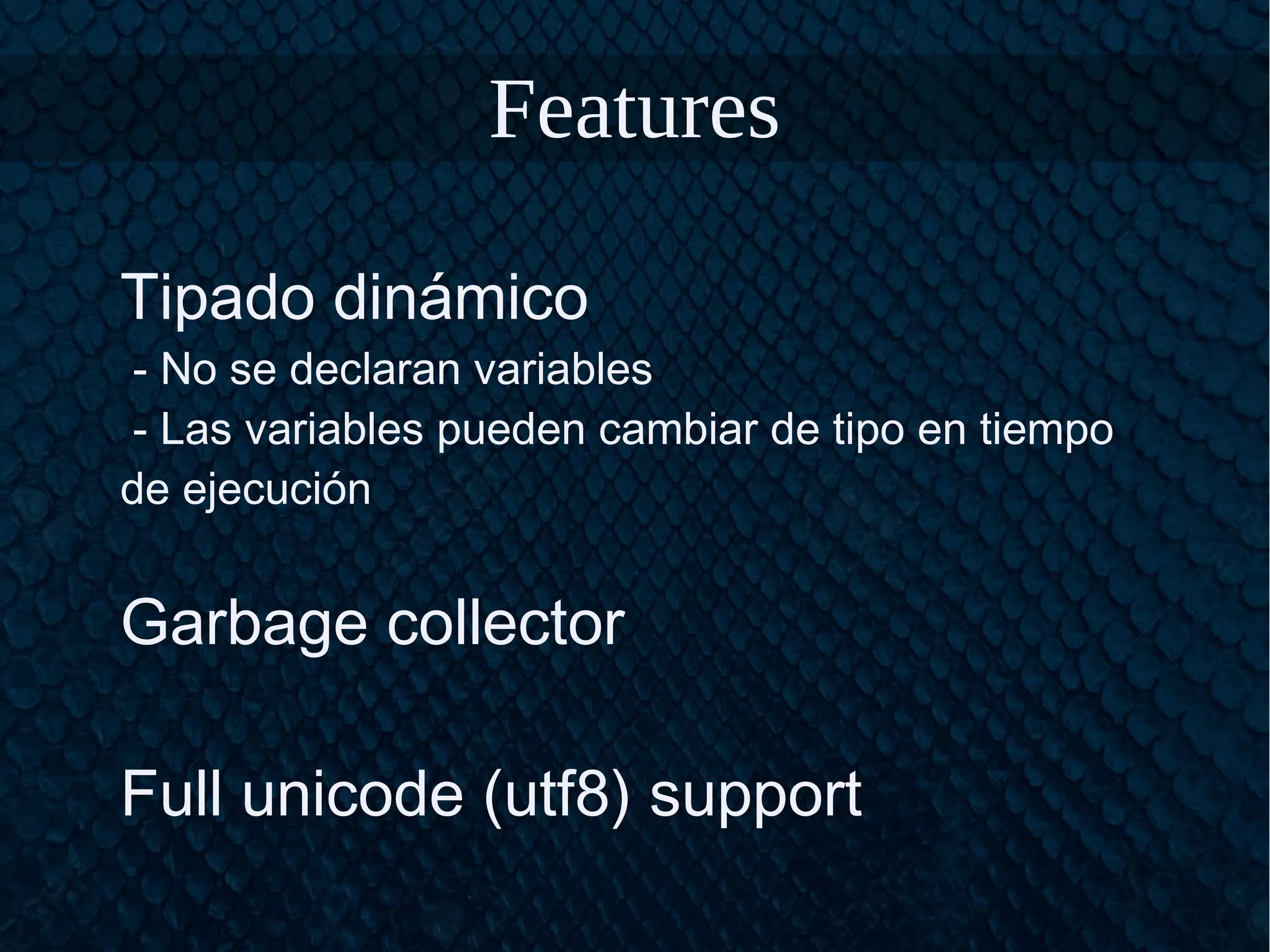
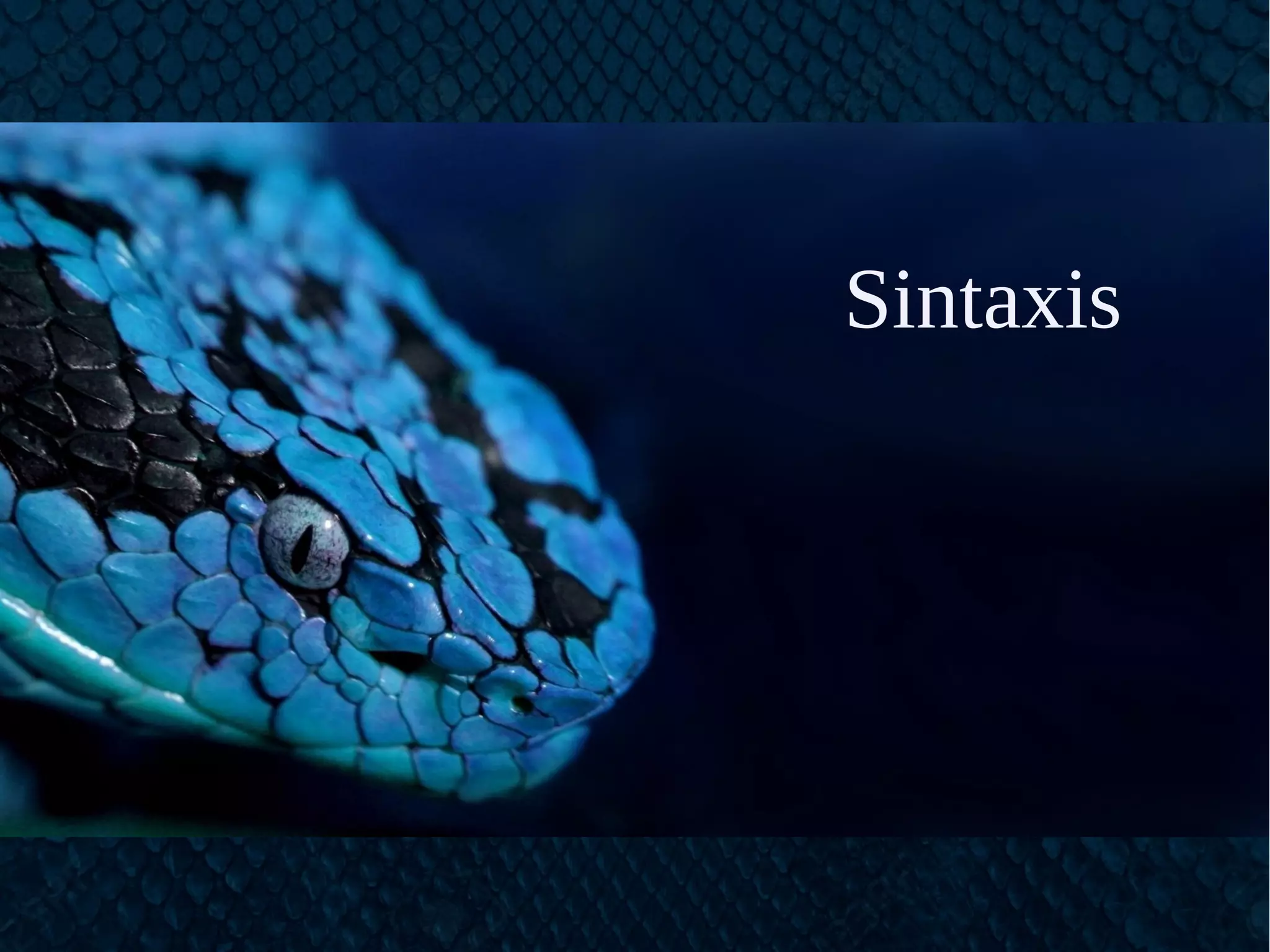
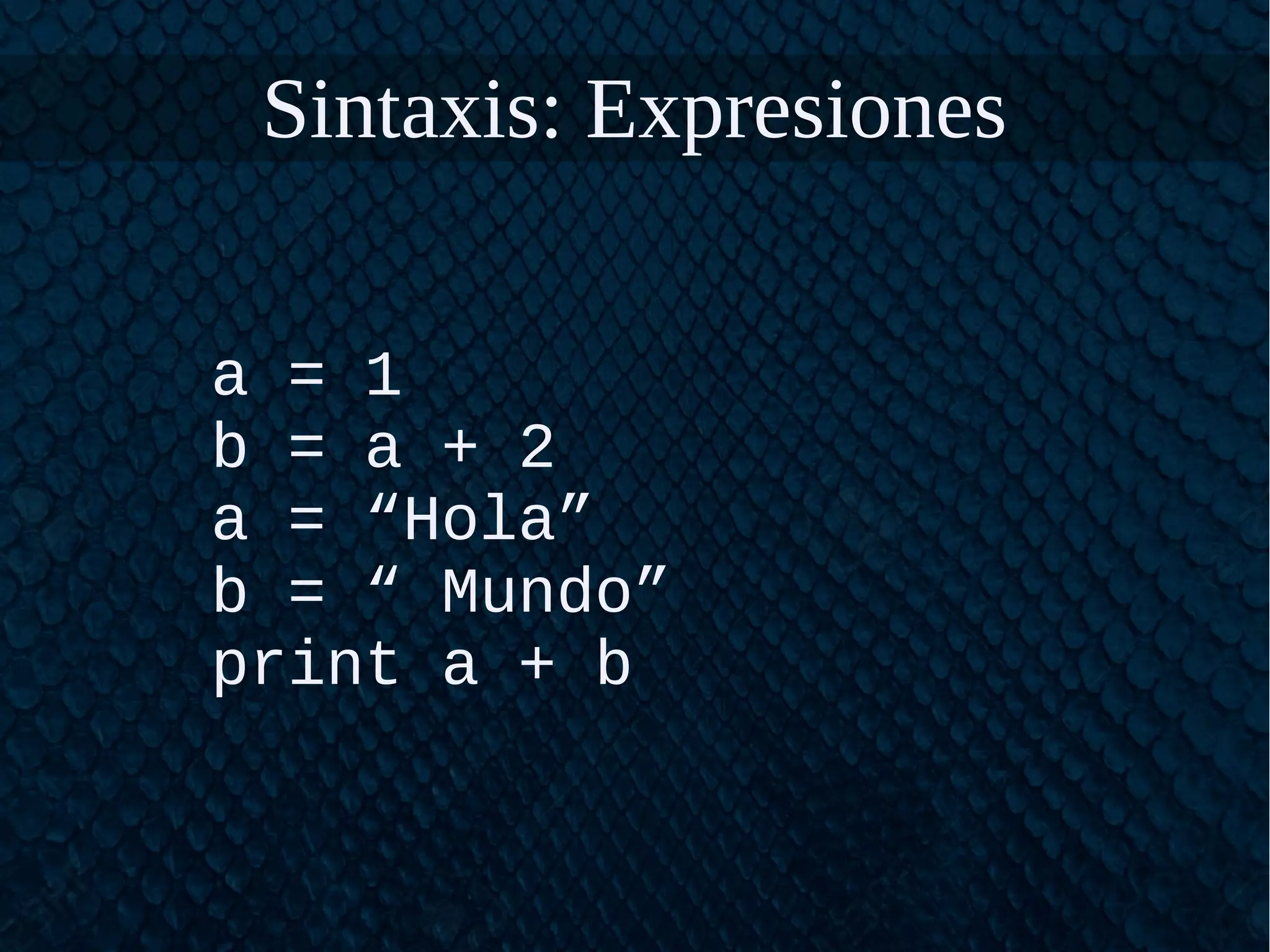
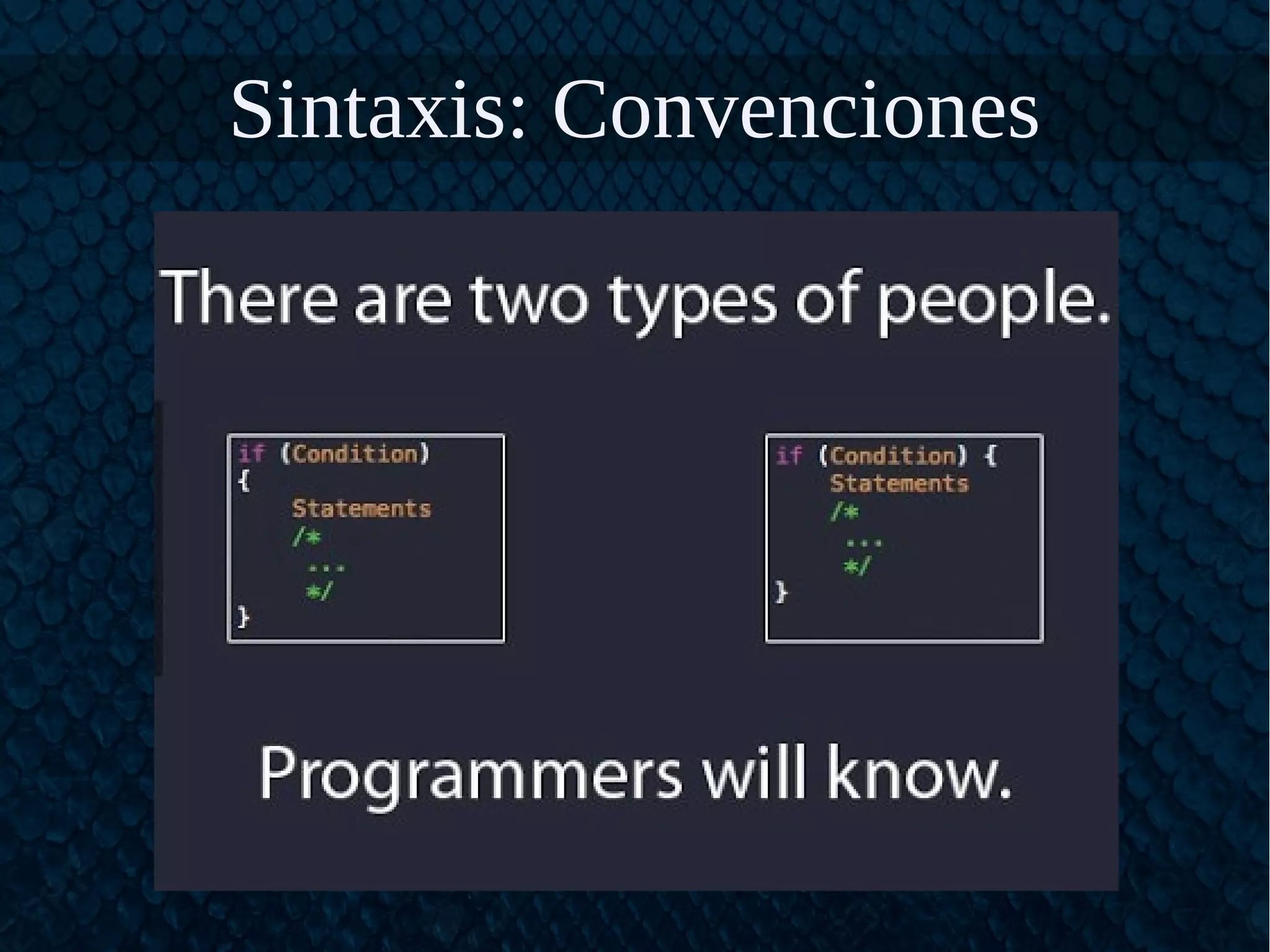
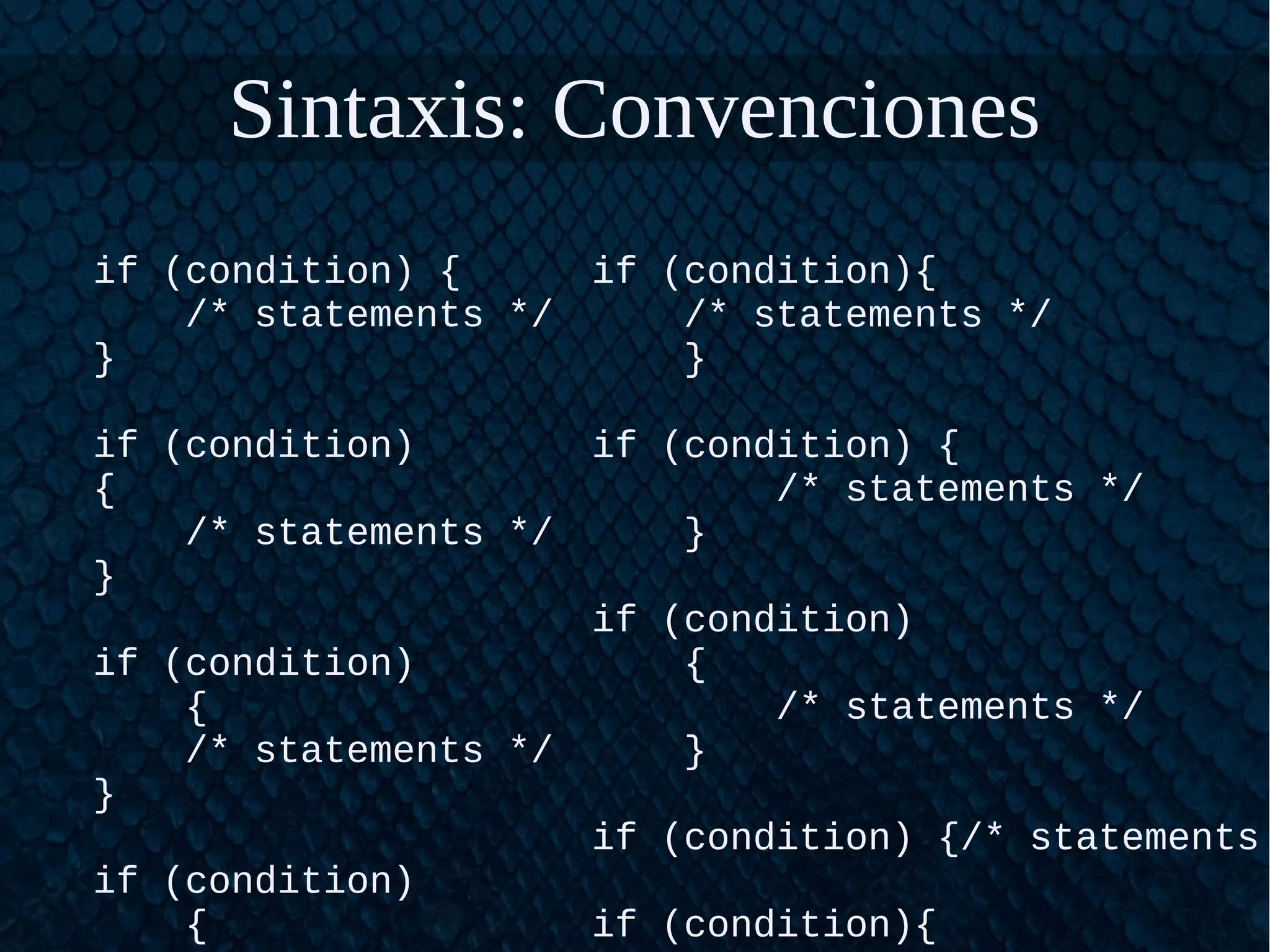
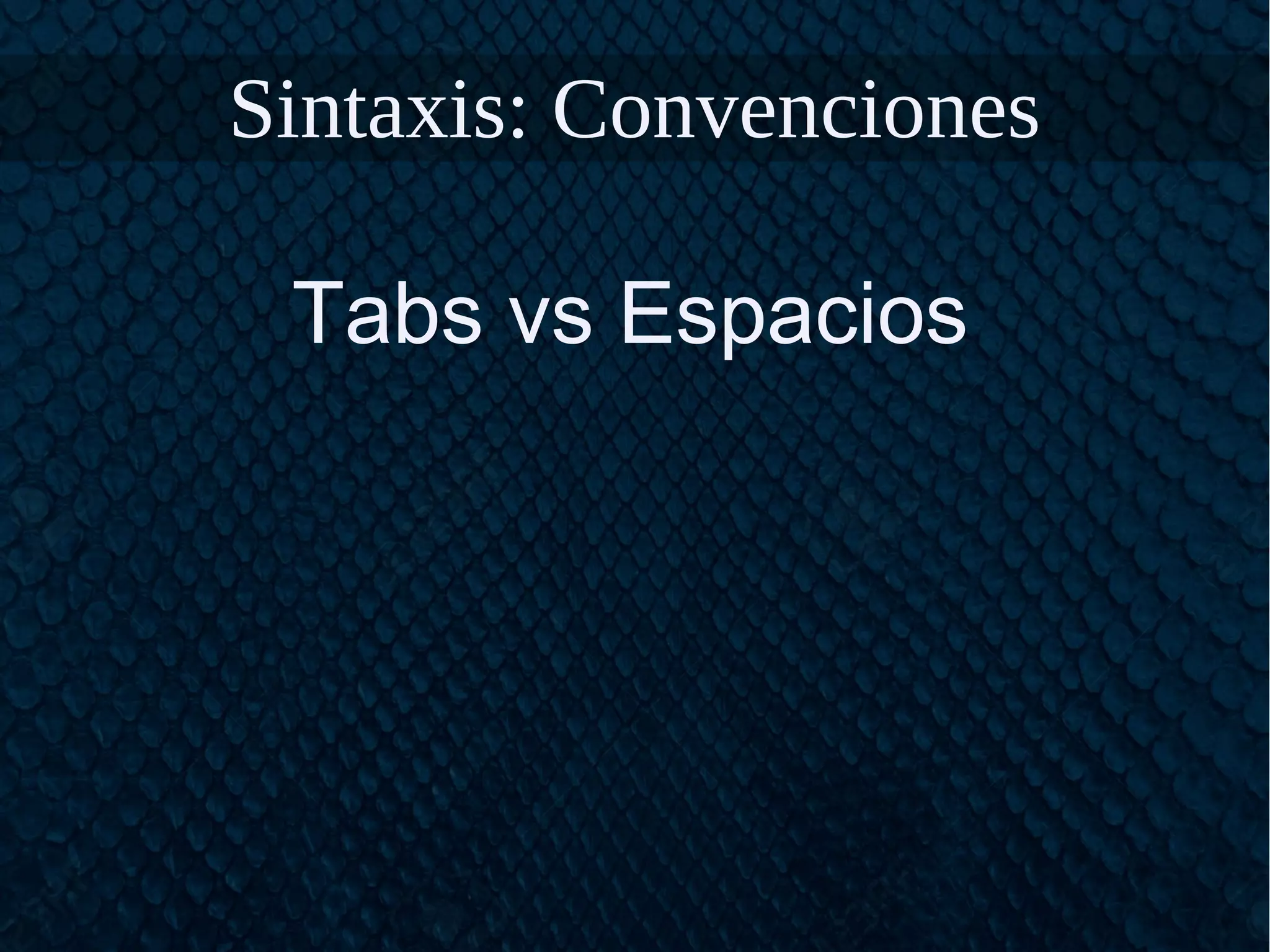
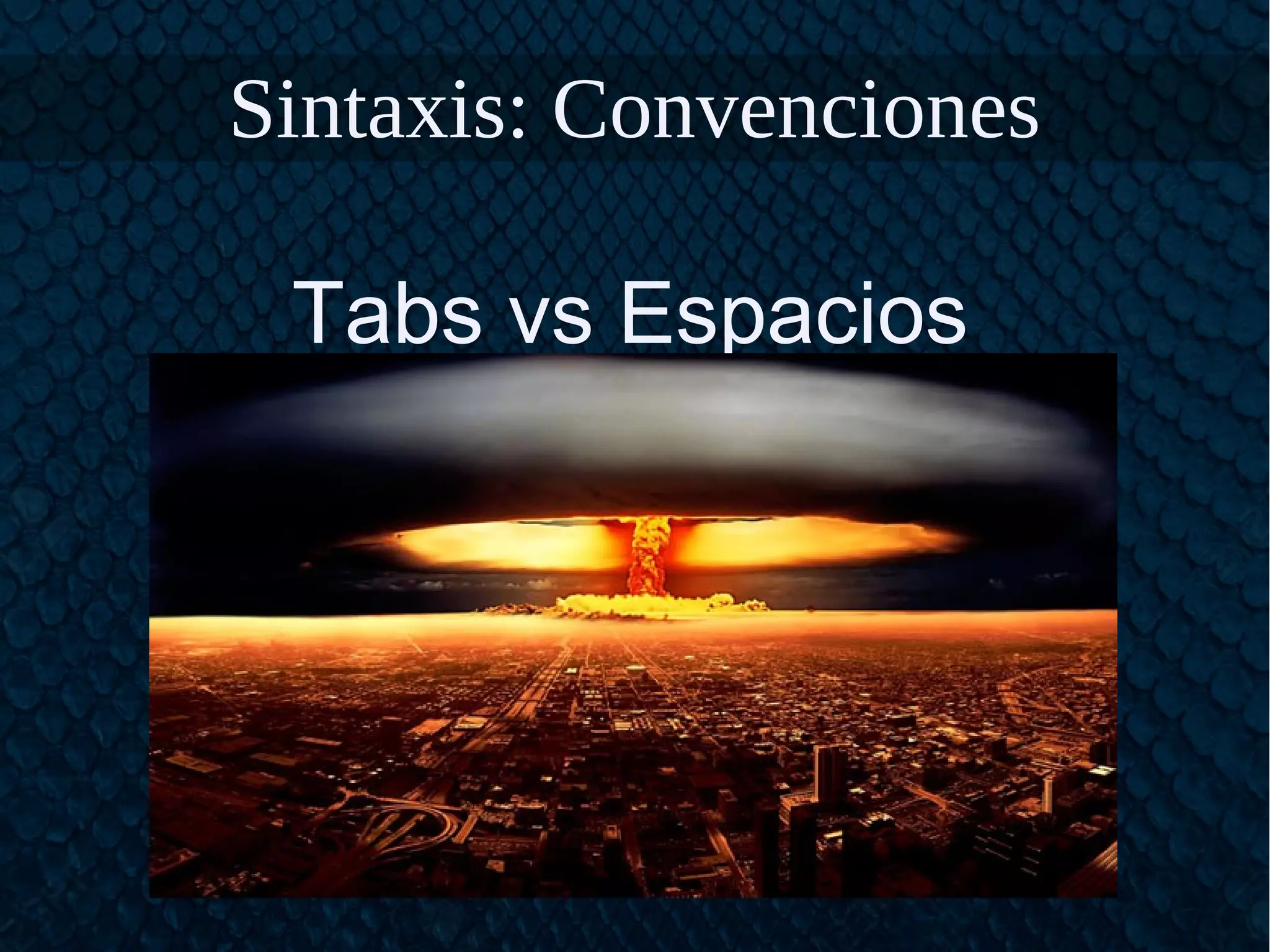
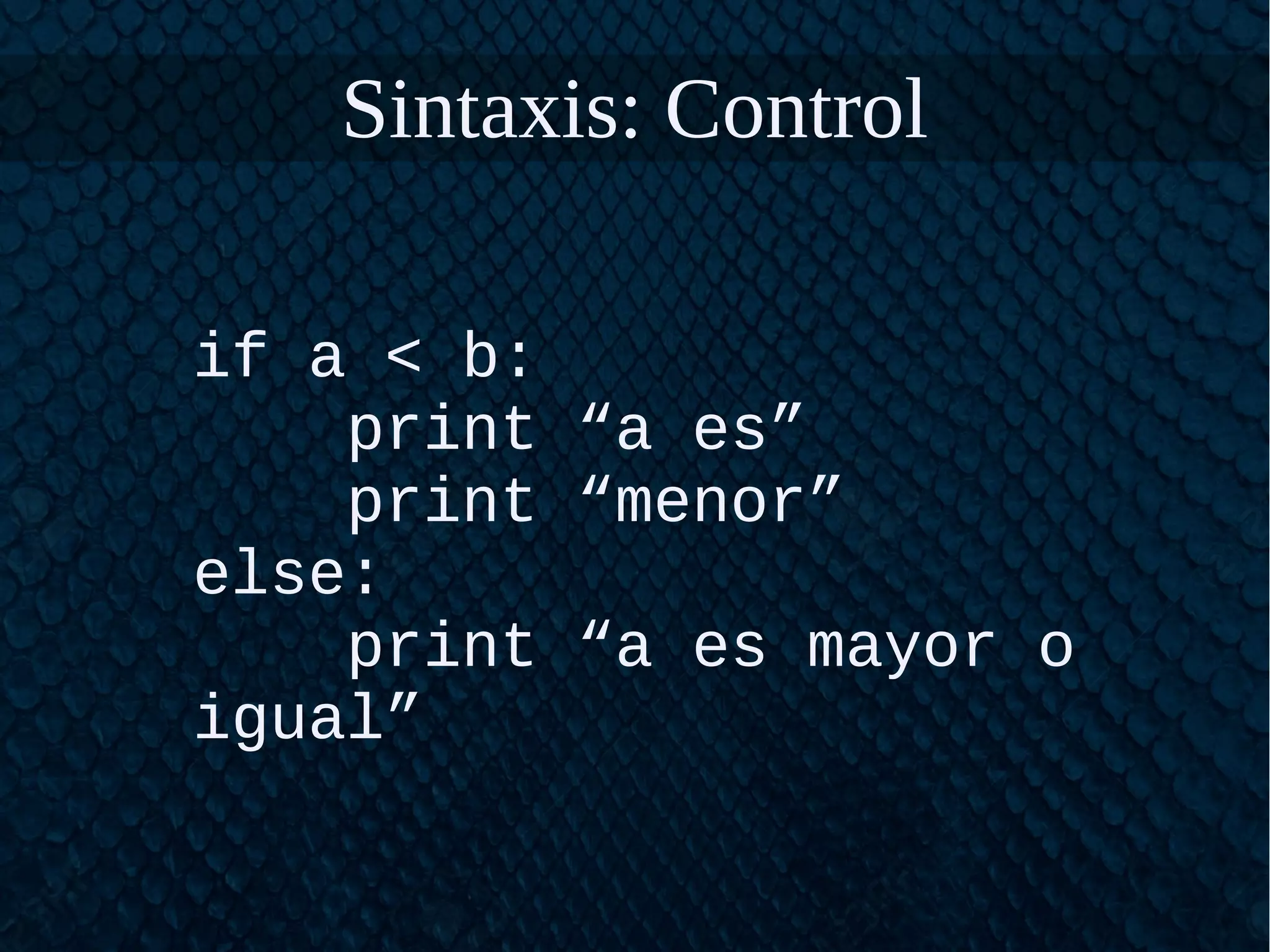
![Sintaxis: Loop
for e in [1, 5, “pepe”]:
print e](https://image.slidesharecdn.com/python101-170206154135/75/Python-101-21-2048.jpg)
![Sintaxis
void bubble_sort (int *a, int n) {
int i, t, s = 1;
while (s) {
s = 0;
for (i = 1; i < n; i++) {
if (a[i] < a[i - 1]) {
t = a[i];
a[i] = a[i - 1];
a[i - 1] = t;
s = 1;
}
}
}
}
def bubble_sort(a):
s = True
while s:
s = False
for i in xrange(len(a) - 1):
if a[i] > a[i+1]:
a[i], a[i+1] = a[i+1], a[i]
s = True
return None](https://image.slidesharecdn.com/python101-170206154135/75/Python-101-22-2048.jpg)
![Sintaxis
void bubble_sort (int *a, int n) {
int i, t, s = 1;
while (s) {
s = 0;
for (i = 1; i < n; i++) {
if (a[i] < a[i - 1]) {
t = a[i];
a[i] = a[i - 1];
a[i - 1] = t;
s = 1;
}
}
}
}
def bubble_sort(a):
s = True
while s:
s = False
for i in xrange(len(a) - 1):
if a[i] > a[i+1]:
a[i], a[i+1] = a[i+1], a[i]
s = True
return None](https://image.slidesharecdn.com/python101-170206154135/75/Python-101-23-2048.jpg)
![Sintaxis ofuscada
void bubble_sort (int *a, int n) {int i, t, s = 1;while (s) {s = 0;
for (i = 1; i < n; i++) {if (a[i] < a[i - 1]) {t = a[i];a[i] = a[i - 1];a[i - 1] = t;s =
1;}}}}
def bubble_sort(a):
s = True
while s:
s = False
for i in xrange(len(a) - 1):
if a[i] > a[i+1]:
a[i], a[i+1] = a[i+1], a[i]
s = True
return None](https://image.slidesharecdn.com/python101-170206154135/75/Python-101-24-2048.jpg)

